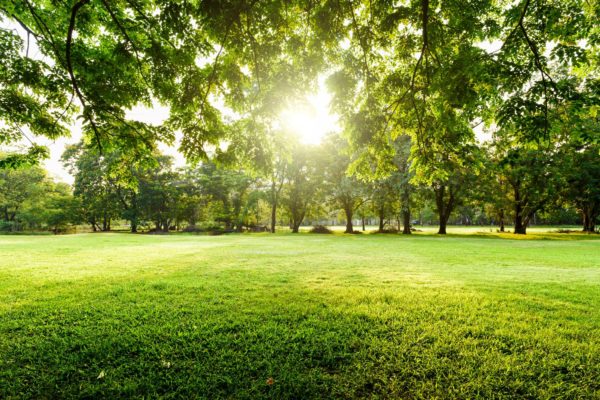
Heat can lead to the loss of lives. According to CDC, around 600 individuals die annually in the United States due to extreme heat conditions. Therefore, many rely on their air conditioning units to stay cool and cozy in their homes and offices. Not only are these systems comfortable, but for some people, it’s vital for their safety. Those with allergies, respiratory complications, and other health issues can suffer greatly without the mechanically conditioned air running throughout their houses.
However, while keeping ourselves cool and comfortable in our homes and offices, the air conditioners endanger the outside environment. Not only can these air conditioning systems pollute the air, but they also contribute a lot to global warming. Here are some ways your air conditioning unit might be contributing to air pollution.
1. Use of Toxic Refrigerants
Unlike fans that circulate air to cool a room, an air conditioning unit passes air via a cooling mechanism known as a refrigerant. While this cooling mechanism makes your air conditioning system more effective at cooling the house than fans, it has some negative effects on the environment and your health.
The refrigerant elements have evolved with time from chlorofluorocarbons (CFCs) to hydrochlorofluorocarbons (HCFCs) to the most current hydrofluorocarbons (HFCs). The CFCs used in air conditioning systems create gas byproducts. This gas can be very harmful, especially if you have an older air conditioner. It increases the holes within the ozone layer, especially when released for a long time.
The present generation of refrigerants (HFCs) has a small effect on the ozone layer. However, it significantly contributes to the greenhouse effect. These leaky compounds can trap heat thousands of times more than carbon dioxide. According to statistics, HFCs production is projected to increase as the world retreats from HCFC refrigerants to minimize greenhouse gas emissions. However, HFC usage is also under scrutiny as the world searches for safe ways to reduce its environmental impact and dependence on fossil fuels.
Although some organizations and environmentalists are campaigning for the phasing out of HFCS, others suggest that these compounds are limited to certain applications with no substitutes. The HFCs debate will continue for some time as different countries look for safe ways to minimize greenhouse gas emissions. Even though scientists are still discovering new chemical compounds with fewer risks, the greenhouse risk remains.
AC refrigerant works in a continuous loop. Therefore, the chemical compound shouldn’t be an issue if your air conditioner is working properly. In some cases, however, refrigerants can leak. If you don’t take good care of your air conditioner, rusting and increased tear and wear of the unit components can cause refrigerant leaks. You will know you have refrigerant leaks when there is insufficient cooling in your residence. Your energy bills might also increase because your system needs to work harder than before to cool your living space.
Improper disposal of air conditioners can also cause refrigerant leakages that pollute the environment. If you no longer use an older AC system, dispose of it properly or hire an HVAC professional to handle it. The other way to prevent refrigerant leaks is by taking proper care of your AC unit. Scheduling preventative maintenance with an experienced professional will keep your AC in good condition. You can also reduce air pollution by investing in an air conditioning unit that uses the safest refrigerants, such as R-404A, R-407C, R-134A, or R-410A.
2. Fossil Fuel Emissions
Air conditioning units are among the most common appliances in many homes, and their usage has increased significantly in recent years. Your air conditioning system needs the power to run and work properly. A typical AC unit consumes between 3,000 and 5,000 watts every hour. The warmer it is, the more power it uses. That is quite costly and very harmful to your environment.
The problem is that the power to run air conditioners and other appliances is generated by burning fossil fuels like oils, natural gas, and even coal. The extraction processes can lead to water and air pollution. When fuels get burned, they produce toxins and harmful emissions. They release carbon dioxide into the air, contributing to ozone depletion. Besides, fossil fuels are the leading sources of global warming pollution.
The consequences of air conditioner usage are more significant than the huge monthly bills. Looking for a more sustainable energy source can help reduce air pollution. If your residential property depends on clean energy, you don’t have to worry about carbon emissions. However, you need to check the environmental effects and carbon emissions caused by your energy source.
Investing in energy-efficient appliances can help protect your local environment. Consider replacing your AC if it’s already old or nearing the end of its lifespan. This way, you will enjoy the benefits of a new, high-efficient system while protecting the environment. Regularly maintaining your AC system can also ensure it operates optimally, prolonging its service life.
3. Thermal Pollution
Your air conditioning unit removes excess heat from your indoor air and releases it outside to cool down your living space. As a result, the outdoor temperatures become warmer. The more AC units there are in your area, the warmer your environment will be. As a result, many people are becoming more reliant on their AC systems to feel comfortable.
The heavy use of AC units can also lead to the urban heat effect. This phenomenon occurs when an area’s buildings become hotter than the nearby rural regions. The air conditioning units in those residential and commercial buildings significantly contribute to the surging heat. Therefore, our dependence on air conditioning units makes us more prone to higher temperatures and contributes to the same.
Plant some trees on your property to naturally cool your local environment to lower your reliance on AC units. You can also use fans to cool your indoor air to prevent your air conditioner from causing a lot of thermal pollution. Optimizing your home’s natural ventilation can also minimize the need for automated or artificial temperature control.
If your home has central air conditioning, investing in a programmable thermostat can allow you to set different temperatures when you’re not at home. For instance, you can set higher temperatures while on vacation or at work, saving you a lot of money on utility bills. This tactic will help you keep your space cool when necessary, without wasting energy when you don’t need conditioned air.
Contact the HVAC Experts Today
The growing use of AC units is increasing air pollution by releasing toxic gases and emissions into the environment. The hotter the environment gets, the more dependent we become on AC systems. The good news is that if your air conditioning unit is working properly and efficiently, it won’t release harmful compounds into the atmosphere. But, if it’s becoming too expensive to keep your aging HVAC unit running normally, you can take comfort in knowing that a newer system will have less impact on the environment.
Contact our cooling professionals from Beyer Air Conditioning & Heating today if you have concerns about your AC unit’s efficiency and energy usage. Our AC experts will first visit your home to inspect your cooling system. After that, they’ll give you recommendations to help reduce its energy usage and increase efficiency while lessening its environmental impact.
We also provide duct cleaning, air quality, humidifiers, duct repair, heating, and new construction services throughout San Antonio, TX and the surrounding areas. Contact us today to schedule your service appointment or order any listed services.



